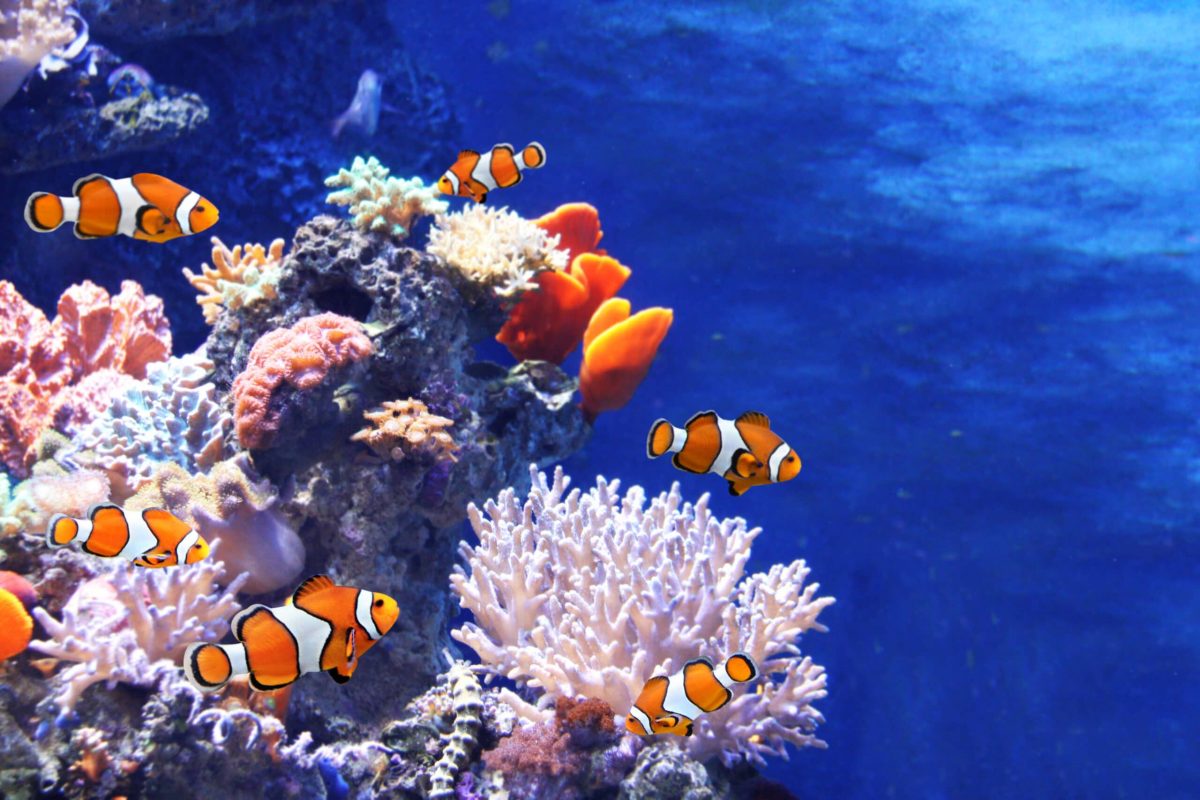Fishes have long been underestimated in their cognitive ability. A memory of just three seconds? Try one year! That’s right – pike showed ‘hook shyness’ for over one year after getting hooked by a fishing line. Now that the silly myth has been busted, let’s get to the juicy stuff.
Are fishes intelligent?
Tool use is considered unique to the most intelligent of animals – including dolphins, primates, octopuses and crows. But many fishes have also been observed using tools: including tuskfish cracking clams on rocks to open them, wrasse crushing sea urchins against rocks to break their spines, and cichlids carrying their eggs on leaves and small rocks. Whether these examples reflect higher cognition needs further investigation, but they demonstrate that fishes are not simple beings.
To demonstrate this further, cleaner wrasse have outperformed chimpanzees, orangutans and capuchin monkeys in an association test. Two servings of food were presented – one on a blue plate and the other on a red plate. If the animal chose the blue plate first, the red plate would be removed. But if they chose the red plate first, then the blue plate would be left, and they could have both. The cleaner wrasse learned to eat from the red plate first after an average of 45 trials; half of the chimpanzees learned it in under 100 trials; and all the other primates failed. Admittedly, the experiment was designed specifically for the cleaner wrasse, giving them an unfair advantage. However, it still proves that cleaner wrasse are capable of learning in novel situations.
Do fishes have friends?
Numerous fishes have been observed cooperatively hunting together. Groupers, for example, hunt with giant moray eels and humphead wrasse. To initiate the desire to cooperatively hunt, fishes approach others and use a range of gestures, including the ‘full body shimmy’. It is particularly impressive that fishes can communicate such intentions across different species groups. Another fish with impressive ‘social skills’ are cleaner fishes, which may receive over 2,000 visits in one day by those wanting to be groomed. Cleaner fishes typically serve new visitors before regular clients so as not to lose new business opportunities (the regulars, after all, are okay to wait longer). This not only shows an understanding of social dynamics, but an extremely impressive memory. In both these instances, it pays to play nice with others because the end result is more food.
But do fishes form friendships with no apparent benefit? One pet store owner recounts her experience of a goldfish who helped a deformed goldfish swim around the tank and eat by swimming underneath him. There was no apparent benefit to the able-bodied goldfish. Could it have been an act of compassion?
Where do we go from here?
The evidence is mounting that fishes are not stupid, simple creatures. Their complexities are certainly deserving of more consideration. For example, research has shown that the loss of larger, older fishes who know migratory routes can reduce social coordination and lead to the dissolution of a group. Yet the current narrative around seafood focuses only on sustainability – in terms of numbers. As highlighted in our previous article, fishes are often excluded from national animal protection laws, and very little research focuses on their welfare. But it might just pay to be nicer to fishes – because research has shown that some can recognise and remember human faces.
Interested in the fascinating world of fish? Explore Oceana’s index of 100 fascinating marine species.
The examples in this story come from ‘What A Fish Knows’ by Jonathan Balcombe. Grab a copy to continue learning about the complex lives of fishes!
